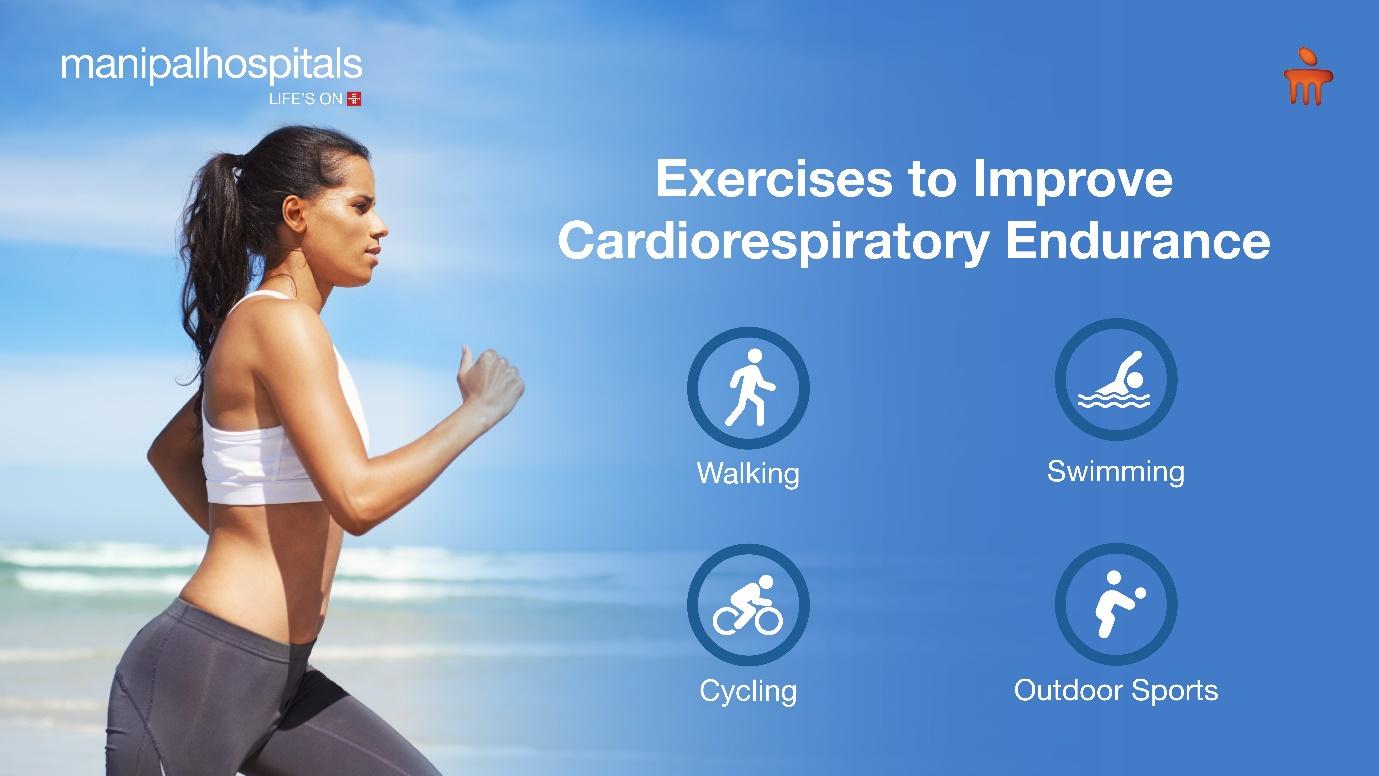
Have you ever wondered how athletes, marathon runners, and swimmers perform their craft with such ease? Their ability to sustain high-level physical activities stems from a single, attainable quality: cardiorespiratory endurance. So, what is cardiorespiratory endurance?
Cardiorespiratory endurance is the coordinated efficiency of the heart, lungs, and muscles, allowing the body to perform moderate to high-intensity full-body exercise for extended periods. This physical attribute explains how elite performers can maintain impressive feats without quickly succumbing to fatigue.
Synopsis
Why is Cardiorespiratory Endurance Essential?
Cardiorespiratory endurance is a key component of your physical fitness as it allows you to exercise for long periods without getting fatigued quickly. It indicates how well the heart and lungs can supply oxygen to the muscles during sustained physical activity.
Cardiorespiratory endurance relies on three key physiological processes:
-
Oxygen delivery: The transfer of oxygen from the air to muscles via the cardiovascular system.
-
Cellular metabolism: The utilisation of oxygen by muscle cells for energy production.
-
Waste removal: The removal of metabolic by-products to reduce fatigue.
Efficient cardiorespiratory endurance involves:
-
Lungs effectively take up oxygen
-
Blood vessels transporting oxygenated blood to the heart
-
Heart pumping oxygen-rich blood to skeletal muscles
-
Muscles efficiently use oxygen
-
Muscles efficiently remove waste products (e.g., lactic acid)
This process chain, when optimised, enhances overall cardiorespiratory endurance and delays exercise-induced fatigue.
How is Cardiorespiratory Endurance Measured?
1. VO2 Max (Maximal Aerobic Power)
This gold standard test measures maximum oxygen consumption during sustained exhaustive exercise. It is the millilitres of oxygen consumed per minute per kilogram of body weight. The procedure for this test involves:
-
You wear an oxygen mask and the doctor will attach electrode connections to the heart monitor
-
You are then running on a treadmill or cycling at gradually increasing speeds
-
The doctor assesses the oxygen consumption and heart rate
For the general population, a good VO2 max typically ranges from 30 to 50, with higher values indicating better fitness. Athletes generally have higher VO2 max values, usually between 40 and 60.
2. Timed runs
In this test, you will run for a certain set distance and the expert will take measurements such as how long you took to complete the run, your heart rate and your oxygen levels throughout.
3. Treadmill tests
While these tests determine heart health, they can also help understand cardiorespiratory endurance. Treadmill tests also provide insight into overall heart health and the potential risk of heart disease
Consult our cardiologist in Goa if you need more information on Cardiorespiratory Endurance.
Benefits of Cardiorespiratory Endurance
Having good cardiorespiratory endurance comes with a hoard of benefits such as:
-
Keeping weight in check
-
Improving our exercise regimen
-
Ensuring that your heart and lungs can better utilise oxygen
-
Reducing fatigue
-
Being able to do daily activities like house chores and climbing the stairs
-
Lowering the risk of cardiovascular diseases, type 2 diabetes, hypertension and certain cancers
How Can I Improve My Cardiorespiratory Endurance?

The good news is that you can improve cardiovascular endurance through consistent exercise. A cardiovascular endurance workout routine can be simple yet effective where you can perform cardio exercises. It is as simple as including moderate-intensity exercise for 30 minutes per day or 150 minutes per week. Some effective cardiovascular endurance exercises include:
-
Walking
-
Cycling
-
Swimming
-
Any other outdoor sport
Incorporating activities like dancing, cycling, aerobics and sports like tennis and basketball into your fitness routine can significantly enhance your cardiorespiratory fitness.
For optimal health benefits, focus on outdoor exercises and avoid too many indoor exercise sessions. While weight training has its merits, it is generally less effective for cardiorespiratory improvement.
Consult our cardiology hospital in Goa if you need help with improving your Cardiorespiratory Endurance.
Conclusion
Increasing cardiovascular endurance is extremely beneficial for heart health and helps you get through your longer workouts. To learn more about how you can improve and assess your heart health, visit our esteemed cardiologists at the Department of Cardiology at Manipal Hospitals, Goa. Our experts will guide you through proper heart-healthy habits so that you can lead an active and energetic life.
FAQ's
Cardiorespiratory endurance is the ability of your heart, lungs, and blood vessels to supply oxygen to your muscles during sustained physical activity.
Regular aerobic exercise, gradually increasing intensity and duration maintaining consistency in your workout routine, regular sleep and a good nutritious diet.
Improved heart health, better lung capacity, increased energy levels, weight management, and reduced risk of chronic diseases.
While primarily beneficial for muscle strength, circuit training or high-rep strength workouts can contribute to cardiovascular fitness.
Common tests include the run test or VO2 max test under professional supervision.





















 4 Min Read
4 Min Read




12.png)
.png)










